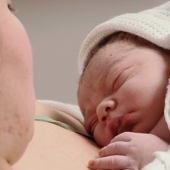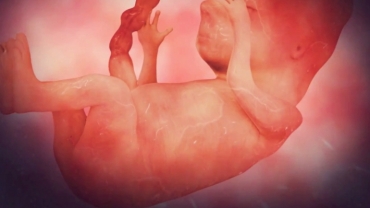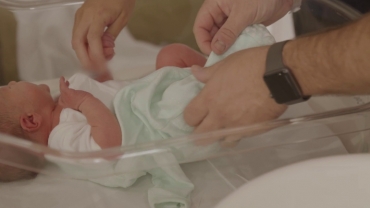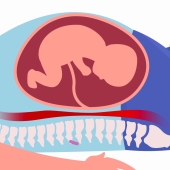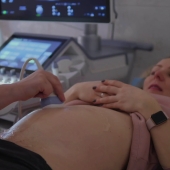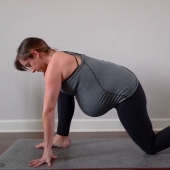One of the things that I find with a lot of pregnant women is that they're so concerned about avoiding listeria. And that they eat a diet that's very high in processed foods, when in reality the recurrent research shows that only about seven pregnant women get diagnosed with listeriosis in Australia each year. So although that is important and we do need to be teaching women how to prepare their food hygienicly and which foods are at very high risk of listeria.
What's more important is helping women to eat well throughout their pregnancy and that means including plenty of vegetables in their diet because that really helps in terms of a wide range of nutrients. It helps to reduce constipation which is a big issue during pregnancy and it means that the babies are getting used to having the vegetables in their diet. As well it means having plenty of lean proteins, because obviously iron is a really big issue during pregnancy.
And fish in particular. Now I see so many women who are avoiding fish during pregnancy because they're worried about mercury. But we need to be educating women about which fish are safe to eat. And for example salmon, as long as it's cooked well is a great choice. Because it's low in mercury and really high in good omega-3 fats. We also need to be educating women to be consuming plenty of whole grains and really high-fiber whole grains, because again they're excellent for the gut microbiota and great at helping women to reduce their risk of constipation.
We need to be educating women about including fruit in their diet. And they deduce safe to eat fresh fruit and particularly with scares like we've had recently with the cantaloupe issue at being at risk of Listeria. We need to be able to teach women that as long as they cut up a cantaloupe themselves as opposed to buying one that's prepackaged, it's going to be safe.
And then we need to also be telling them the importance of dairy products because some women avoid dairy during pregnancy and it's really important for them to be having dairy to reduce the risk of future dairy and cow's milk protein allergies. So they're the key types of foods that we want to our pregnant women to be eating. And one more that I would add would be a diet that is really high in water, because women gain a lot of fluid stores during pregnancy.
- 122 views



